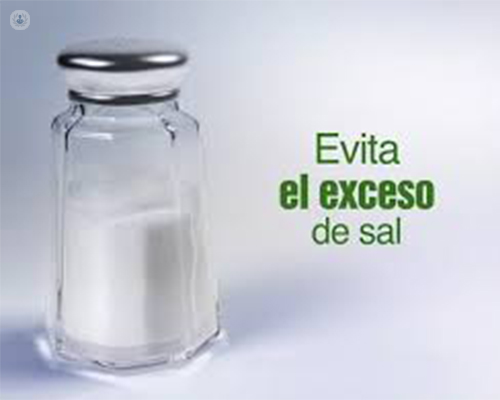The harmful effects of excessive salt consumption
Written by:Salt is often used in food as a condiment or as a conservative element. Almost 10% of the salt consumed by Western people comes naturally from food, 15% comes from what is added during home-made food and 75% from what is added by the food industries. A higher consumption with the addictive effect of salt.
A large amount of sodium in the body has adverse effects on the heart muscle or myocardium. In this way, the heart fails to perform well and diseases such as heart attacks or heart failure appear. On the other hand, it is basic for the organism that the kidney works well, since it is in charge of the filtration and the purification of the blood. The increase of salt can cause in this a deterioration that triggers in renal calculations. In addition, excess salt intake can also lead to fluid retention, gastric disease and even stroke or cardiovascular accidents.

How to reduce salt intake
It is preferable to buy packaged foods and carefully prepared, so it is recommended to look well the labels, as they reveal the amount of sodium in the product. It is also advisable to buy fresh and frozen poultry and be careful with condiments, in general, packaged sauces are usually high in sodium. On the other hand, you can buy vegetables in which you specify that no salt has been added and frozen without salty sauces.
When preparing foods it is healthier to use onions, garlic or herbs, among others, to bring more flavor to foods. As for legumes, take special care in draining and rinsing those that come canned, as well as in vegetables. On the other hand, it is also advisable to cook rice, pasta and cereals without salt, in addition to baking, grilling or sautéing. Finally, it is advisable to increase the consumption of potassium with vegetables, potatoes, yogurt, oranges and melon because it helps to counteract the effects of sodium, in addition to lowering blood pressure.
In restaurants, you have to ask how you want the food to be prepared, that you do not add extra salt, and you should always try the processed foods at home before adding more salt.
As mentioned above, the consumption of salt causes addiction in humans, just as if this consumption is reduced dependence and appetite for it decreases. By reducing it, after a few days you can begin to appreciate the true taste of food and taste buds begin to get accustomed. Sodium substitutes such as potassium can be found on the market.
Sodium reduction requires action and support from health care providers, professional organizations, public health agencies, and governments and the food industry. In this sense, some of the actions of the American Heart Association and the Spanish Society of Cardiology are: to encourage manufacturers to reduce the amount of sodium in food, advocate for healthy foods, such as fruits and vegetables Accessible and accessible to the public and provide consumers with educational tools to make better food choices.


